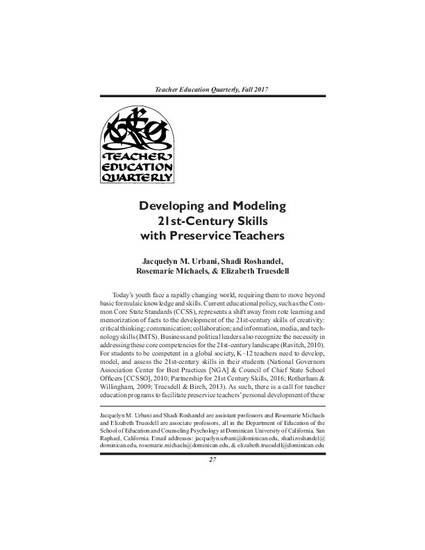
Today’s youth face a rapidly changing world, requiring them to move beyond basic formulaic knowledge and skills. Current educational policy, such as the Common Core State Standards (CCSS), represents a shift away from rote learning and memorization of facts to the development of the 21st-century skills of creativity: critical thinking; communication; collaboration; and information, media, and technology skills (IMTS). Business and political leaders also recognize the necessity in addressing these core competencies for the 21st-century landscape (Ravitch, 2010). For students to be competent in a global society, K–12 teachers need to develop, model, and assess the 21st-century skills in their students (National Governors Association Center for Best Practices [NGA] & Council of Chief State School Officers [CCSSO], 2010; Partnership for 21st Century Skills, 2016; Rotherham & Willingham, 2009; Truesdell & Birch, 2013). As such, there is a call for teacher education programs to facilitate preservice teachers’ personal development of these skills as well as their application to educational settings (American Association of Colleges for Teacher Education, 2010; Michaels, Truesdell, & Brown, 2015).
Copyright © Caddo Gap Press. All Rights Reserved.
Not to be reproduced, copied, sold, or distributed without permission from the publisher.
Available at: http://works.bepress.com/elizabeth_truesdell/20/
